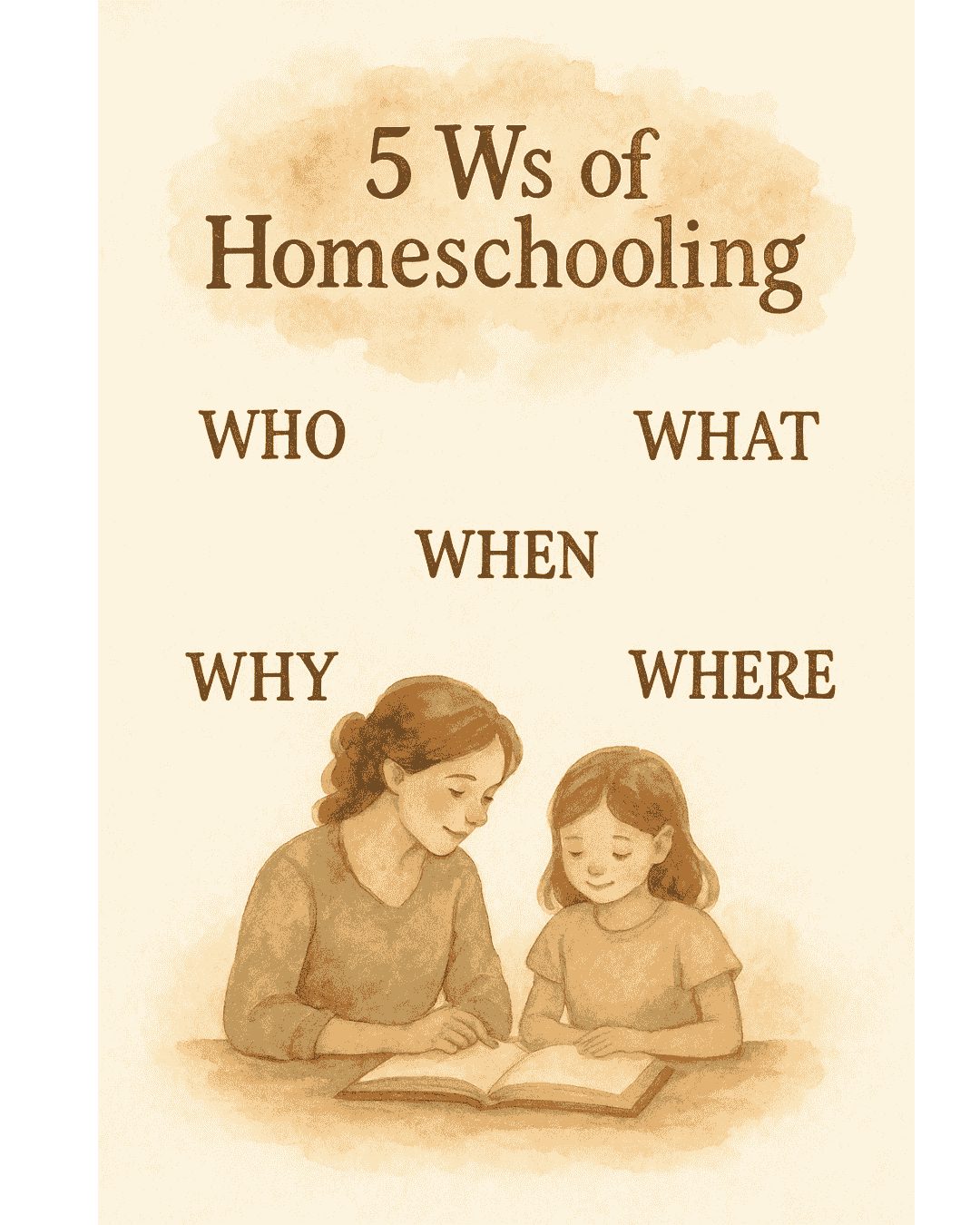Chapter 6 Five Ws of Homeschooling

Who:
All parents who choose to homeschool their children instead of sending them to public or private schools.
According to the most recent NCES (National Center for Education Statistics) survey, among all K–12 students in the U.S. who are homeschooled:
- 59% are White,
- 26% Hispanic,
- 8% Black,
- 3% Asian,
- 4% Other ethnicities.
This shows increasing racial and ethnic diversity in the homeschooling population, compared to its earlier history as a predominantly White demographic.
When:
Flexible scheduling.
This is actually one of the top reasons why many parents choose homeschooling, although strangely, it is often not officially listed as a primary motivator.
Where:
At home.
As the saying goes, "No place is sweeter than home."
What:
Parents select curricula from various educational publishers based on their children’s needs and interests.
Core subjects are no different from traditional schools — language arts, math, science, etc.
Why:
According to NCES’s 2016 survey (parents could select multiple reasons), the top motivations for choosing homeschooling, ranked by percentage, were:
- Religious beliefs
- Moral instruction
- Concerns about peer pressure or bullying at school
- Dissatisfaction with academic instruction at school
- Desire for nontraditional education
- Child has special needs
- Child has health problems
- Temporary illness
- Other reasons
Personal note:
What strikes me as odd is that the list doesn’t include reasons like flexible scheduling, spending more time with children, or increasing parental influence.
Personally, the ability to travel off-season has always been one of my favorite (though not most important) aspects of homeschooling.
👩👧 Reflections on Public School Socialization
I believe the social function of public schools is often overrated.
As someone who was bullied, mocked, betrayed, and disliked by teachers in elementary school — and later became something of a dark horse in high school exams — I experienced both ends of the social spectrum.
In middle school, I wasn’t popular, but I wasn’t bullied either.
Due to my family background and personal struggles with sin, I was self-pitying, self-centered, socially inept, and didn’t understand interpersonal relationships — let alone how to truly be a friend.
I wasted what should have been the golden years for forming deep friendships.
Fortunately, in high school, I made one or two close friends who brightened my otherwise pale, ranking-obsessed youth. LOL.
If I had to grade my social life over 12 years of traditional schooling, I’d give myself a barely passing score.
🌱 Turning Perceived Weaknesses into Strengths
When it comes to homeschooling, many so-called “drawbacks” can actually become advantages.
For example:
- Test-taking ability can be improved with focused instruction.
- Social development can actually benefit from homeschool environments where parents can guide and supervise interactions.
Many benefits of public school — such as peer learning — can be replicated through thoughtful planning in homeschooling, especially by forming co-op groups.
🌼 A Personal Analogy: Gardening and Homeschooling
Lately, I’ve been gardening again on our balcony in Shenzhen — growing flowers and plants while learning online and buying seed trays and other supplies.
This process made me reflect on the science of child development.
Why is homeschooling ideal during early childhood?
Because it’s just like nurturing seedlings in a greenhouse!
When children grow older — once their values, worldview, and learning habits are firmly rooted — they can be transplanted into the “big world” outside.
I have more thoughts, but I’ll stop here for now.
P.S.
I wrote the article several years ago. We have long left Shenzhen but I'll update later.



